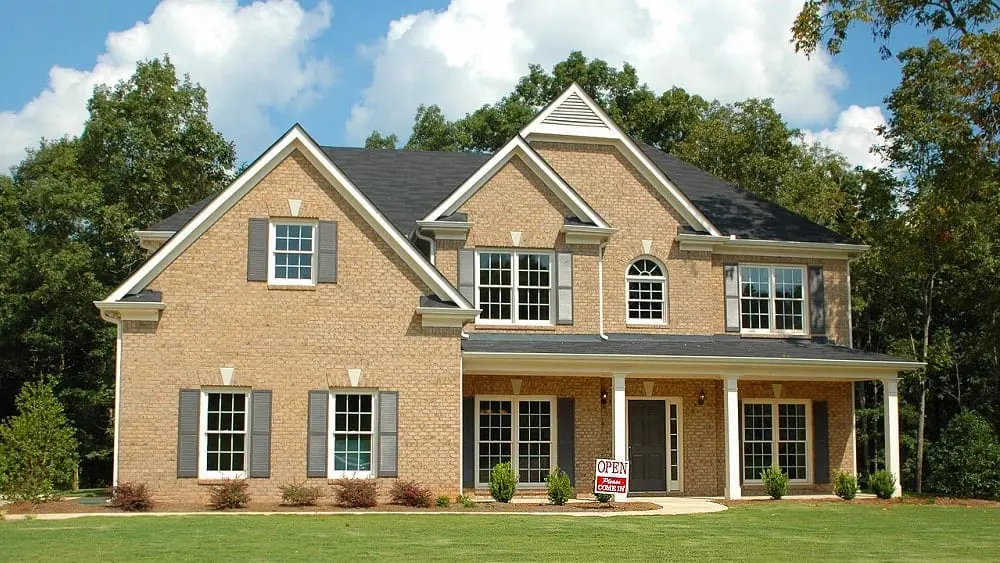
Selling your house usually means a hefty check come closing day, but those profits don’t come for free. In fact, sellers actually face a good number of expenses when listing their homes.
Are you thinking of selling your house and buying a new one? Here are some of the costs you’ll incur along the way.
Costs to Prep Your Property
Getting your home ready to sell is where you’ll first face costs. Though the exact preparations will vary based on your property and its overall condition, you can generally expect to perform some level of:
Cleaning
A top-to-bottom cleaning is critical, particularly before photographing and listing the home. Though you can certainly DIY this part, a professional deep cleaning can be a good option too. This service generally costs between $200 and $400, according to Angies List.
Repairs
If your home has any underlying issues (holes in the wall, broken doors, chipped paint, etc.), then you’ll need to repair these before putting it on the market. The costs will depend on the extent of the repairs, but you can usually expect at least a few hundred dollars in minor repairs, even if your home is in decent condition.
Staging
Professional staging can be a great way to make your home more marketable and increase your profits — real estate agents say it increases a home’s value by anywhere from 1 percent to 10 percent. According to HomeAdvisor, the average cost for staging is just over $1,100.
Exterior Updates
You may also want to spend some cash updating your home’s curb appeal through landscaping, repainting or other methods. If you’re using a pro landscaper, you can expect to pay between $1,300 and $5,300 for the job. Exterior painting costs slightly less.
Energy Audits
Some municipalities require an energy audit before a home can transfer hands. These run between $100 and $300 in most places.
If you really want your home in top condition before you list it, you might consider a pre-listing home inspection, which will pinpoint any defects that could derail your sale. Most home inspectors charge $300 to $400 for these services.
Real Estate Agent Commissions
Unless you’re planning on listing and marketing the home yourself, you’ll need a real estate agent’s help — and that comes with a fee. Most listing agents charge a commission of 6 percent of the home’s purchase price, which comes directly from your sale profits.
This will likely be your biggest charge as a seller. On a $200,000 home sale, you’d pay around a $12,000 commission.
Closing Costs
The buyer pays the bulk of the closing costs, but there are still a handful that fall on the seller’s shoulders.
These will vary depending on your state and community, but you might be required to cover things like:
- Property and transfer taxes
- HOA fees
- Attorney fees
- Title insurance
- Escrow fees
Additionally, you may owe capital gains taxes on your sale profits, and depending on the terms of your mortgage loan, there may be prepayment penalties charged for paying off your loan early.
Negotiable Expenses
There are a number of costs that will come up during negotiations. The buyer may request that these costs be paid, or you might offer them as an incentive to the buyer.
Some of these include:
Seller Concessions
These are funds that help reduce the buyer’s closing costs.
Post-Inspection Repairs
Once your buyer has had the home inspected, they might ask you to repair any issues the home inspector finds. If you don’t want to complete the repairs yourself, you can offer repair credits — essentially cash to help the buyer cover the repairs after closing. You’re under no obligation to do either (though refusing may kill your deal).
Home Warranties
Most buyers want a home warranty to protect them if anything goes wrong in the house shortly after they move in. These are often covered by the seller and range anywhere from $200 to upward of $500.
None of these costs are necessary or set in stone, and your agent can help negotiate them all on your behalf.
Reducing Your Costs When Selling
Negotiating is one way to lower your costs, but it’s not your only option. If you really want to reduce the expenses you face when listing your home, here are a few other strategies:
- Shop around. Don’t go with the first agent, home stager or inspector you come across. Shop around, compare rates and fees, and make sure you’re getting the best deal.
- DIY it. You don’t have to use a pro for every step of the process. Consider cleaning and staging the home yourself, and if you’re the handy type, make your repairs and exterior updates solo too.
- Skip the agent. If you don’t want to pay the hefty agent commission, you have two options: Sell and list the home yourself (dubbed a for sale by owner or FSBO) or bring in an iBuyer. Opendoor and Offerpad are popular iBuying options you might want to consider.
You can also opt out of seller concessions and avoid making any requested repairs from the buyer. Just keep in mind that doing so could hurt your deal and make it harder to sell the home in general.
What’s Next?
Is a new construction home on the agenda once you sell your property? If so, we can help. Head over to our resources section or check out our expert home builder reviews for more guidance.

I’m a freelance writer and journalist from Houston, covering real estate, mortgage and finance topics. See my current work in Forbes, The Motley Fool, The Balance, Bankrate, New Home Source and The Simple Dollar. Past gigs: The Dallas Morning News, NBC, Radio Disney and PBS.
 Multi-Gen Living: What Is It & How Can It Benefit Your Family?
Multi-Gen Living: What Is It & How Can It Benefit Your Family?